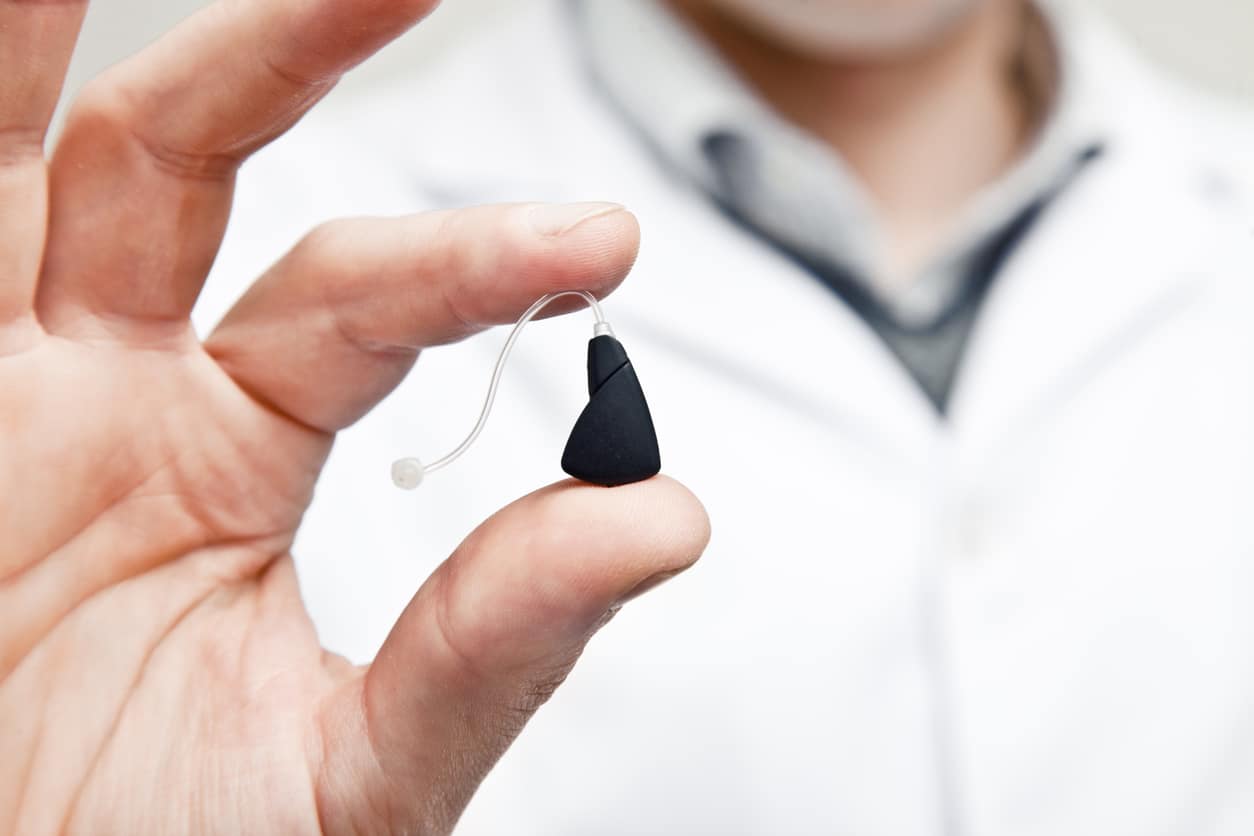When people think of hearing support, hearing aids are typically the first thought. There’s also a wide range of hearing devices designed to help people with varying degrees of hearing loss and in different listening environments.
From traditional hearing aids to assistive listening devices, understanding your options can empower you to choose the right tools for your hearing needs and lifestyle.
Hearing Aids

Hearing aids are small electronic devices worn in or behind the ear that amplify sounds for people with hearing loss and nearly 28.8 million people could benefit from them. They’re designed to help with everyday communication and can be customized to suit your specific hearing profile.
Modern hearing aids often come with features like Bluetooth® connectivity, rechargeable batteries, noise reduction and directional microphones. Hearing aids come in a variety of fits to best suit a user’s lifestyle.
Assistive Listening Devices
Assistive listening devices amplify sound and improve speech clarity in specific settings.
Types of ALDs include:
- Personal amplifiers: Small, portable devices that capture and amplify sound, ideal for one-on-one conversations or small groups
- FM systems: Use radio signals to transmit a speaker’s voice directly to the listener’s device, commonly used in classrooms or lecture halls
- Induction loop systems: Also known as hearing loops, these use magnetic fields to send sound directly to hearing aids equipped with a telecoil (T-coil)
- Bluetooth® streamers: Devices that stream audio from phones, tablets or computers directly to hearing aids or cochlear implants
These technologies can enhance your hearing experience in public spaces, group settings or when engaging with electronic devices.
Captioning and Alerting Devices
Not all hearing solutions are about sound amplification. Some devices focus on making information accessible in other ways.
These helpful tools include:
- Captioned telephones: Provide real-time text of phone conversations so you can read what the caller is saying
- Visual alert systems: Use flashing lights or vibrations to signal doorbells, alarms or phone calls
- TV captioning: Offer improved dialogue clarity or live text display for shows and movies
These devices support independence and safety in the home and while communicating.
Cochlear Implants
For individuals with profound hearing loss who don’t benefit from traditional hearing aids, other medical devices may be recommended.
Advanced hearing solutions include:
- Cochlear implants: Surgically implanted devices that bypass damaged parts of the ear to directly stimulate the auditory nerve
- Bone-anchored hearing systems (BAHS): Use bone conduction to transmit sound to the inner ear, helpful for conductive or single-sided hearing loss
These options are typically recommended by specialists after comprehensive hearing evaluations.
Choosing the Right Hearing Device
The best hearing device for you depends on a variety of factors, including:
- The type and severity of your hearing loss
- Your lifestyle and daily listening environments
- Comfort with technology
Working with a hearing specialist is the best way to explore your options and determine the right combination of devices for your needs. To learn more about your hearing amplification options, including hearing aids, contact Audiology Associates of Redding to schedule an appointment today.